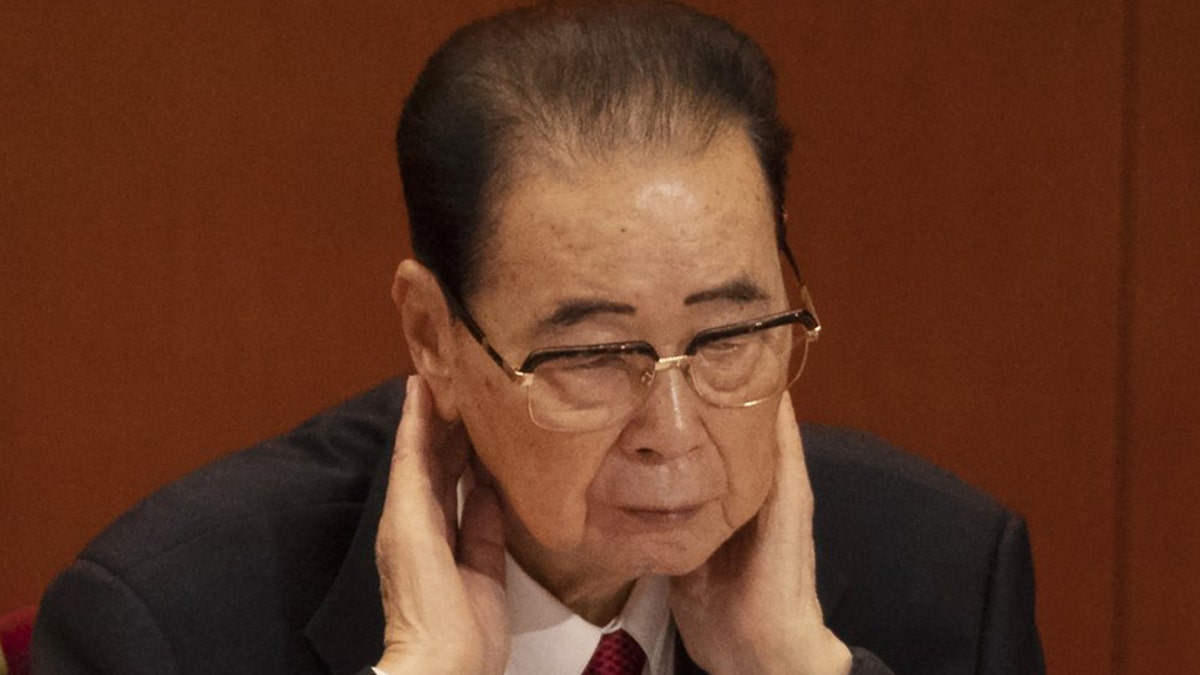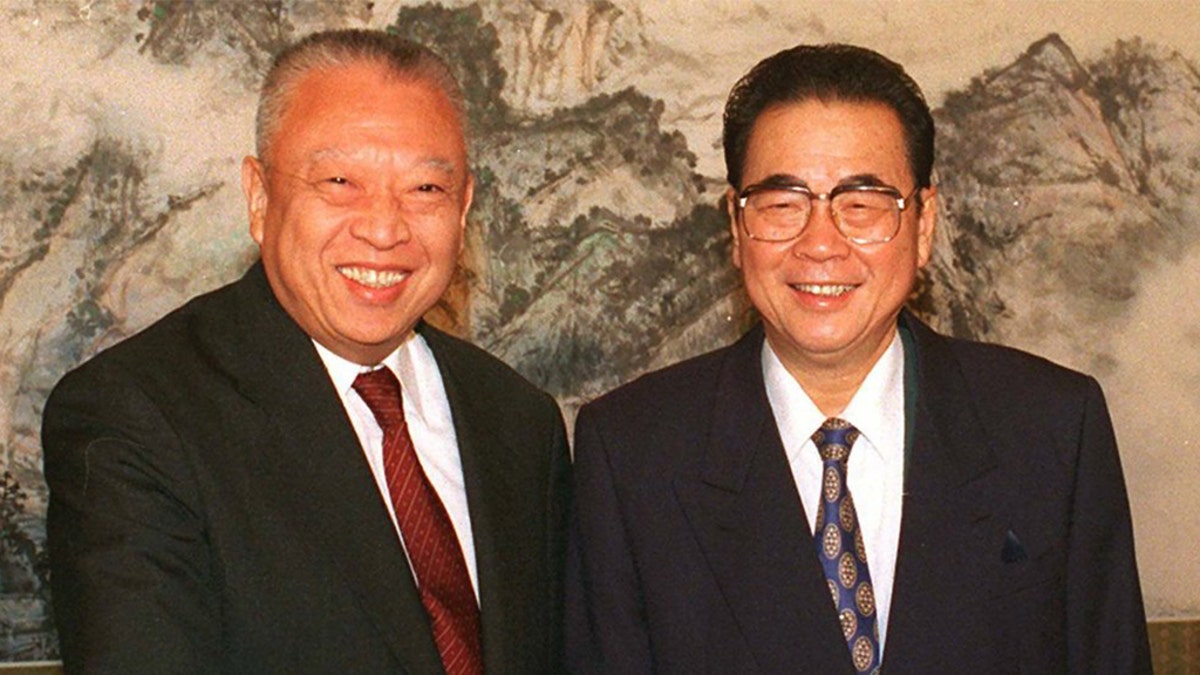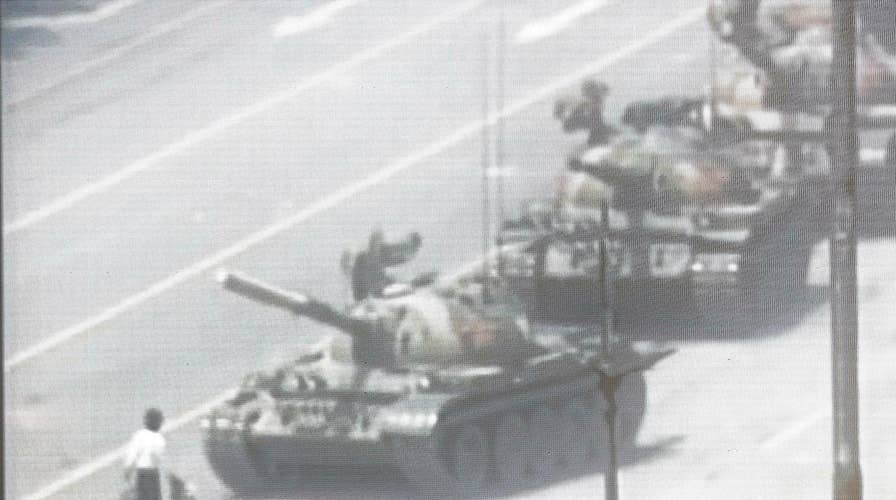World marks 30 years since Tiananmen Square massacre
China does not recognize the anniversary of the protests and has even removed references to them from the internet; Kitty Logan reports.
A former staunch Chinese premier most famous for announcing martial law during the 1989 Tiananmen Square pro-democracy protests has died at the age of 90.
The official state-run news outlet Xinhua News Agency said Li Peng died Monday of an unspecified illness.
Li’s role in the Tiananmen Square crackdown earned him the nickname “Butcher of Beijing” as his soldiers killed hundreds of unarmed civilians; he later defended his actions as a “necessary” step. In his obituary, Xinhua said Li “took decisive measures to stop the unrest and quell counter-revolutionary violence” during the Tiananmen Square protests.
China has since censored the incident for the last three decades, avoiding any references to the massacre and atrocities occurring at that time.

In this Nov. 8, 2012, file photo, former Chinese Premier Li Peng attends the opening session of the 18th Communist Party Congress at the Great Hall of the People in Beijing. Li Peng, a former hard-line Chinese premier best known for announcing martial law during the 1989 Tiananmen Square pro-democracy protests, has died. He was 90. (AP Photo/Ng Han Guan, File)
Li, a cautious and monotonous figure, was a keen political infighter who spent two decades at the seat of power before retiring in 2002. In his death, he left behind a legacy of extended and broad-based economic growth coupled with authoritarian political control.
He oversaw China’s resurgence from post-Tiananmen isolation to rising global diplomatic and economic influence, a development he celebrated in often defiantly nationalistic public statements.
“Ridding themselves from the predicament of imperialist bullying, humiliation, and oppression, the calamity-trodden Chinese people have since stood up,” said Li in a 1995 speech for the Oct. 1 anniversary of China’s Communist Revolution that brought the ruling government to power.
Li will also be remembered for his push for approval in his pet project, the $22 billion Three Gorges Dam on the Yangtze River, which has forced 1.3 million people to leave their homes destroyed by the dam’s enormous reservoir.
Li stepped down as premier in 1998, becoming chairman of the National People’s Congress, China’s parliament. He retired from the party’s seven-member ruling Standing Committee in 2002 as part of a long-planned handover of power to a younger generation of leaders headed by Hu Jintao.
After his retirement, Li rarely appeared in public and was usually seen only at official gatherings aimed at displaying unity, such as the 80th anniversary of the founding of the People’s Liberation Army in 2007.

In this Dec. 10, 1997, file photo released by CHina's Xinhua News Agency, then Hong Kong leader Tung Chee-hwa and then Chinese Premier Li Peng shake hands at the start of their meeting in Beijing. Li Peng, a former hard-line Chinese premier best known for announcing martial law during the 1989 Tiananmen Square pro-democracy protests, has died. He was 90. (Xinhua via AP, File)
As his profile waned, he allegedly began lobbying older colleagues to support his children’s political ambitions, though with no clear success.
Li returned to headlines in 2010 when a Hong Kong publisher announced he had Li’s purported memoir on the Tiananmen Square crackdown, although the publisher later halted the book’s release by claiming copyright issues. The supposed excerpts of the diaries were subsequently leaked online.
Born in Oct. 1928 in Chengdu, a city in southwestern China, he was adopted by the late Premier Zhou Enlai after Li’s father, an early communist revolutionary, was killed by the rival Nationalists in 1931. Li joined the Communist Party in 1945 after joining Zhou, Mao Zedong and others at their wartime guerrilla base of Yan’an in the northwest. After spending six years as an engineering student in Moscow, Li worked as an engineer for a decade in the country’s northeast.
In 1985, Li became a member of the party’s decision-making Politburo with an education portfolio. It was in this role that he established himself as a conservative, telling students in 1985 that China could never become a capitalist nation.
Li’s tough stance when students staged pro-democracy demonstrations in Beijing, Shanghai and other cities in late 1986 and early 1987 helped him win a post on the powerful Politburo Standing Committee, and he became acting premier in November 1987. Li triumphed over pro-reform party leader Zhao Ziyang in 1989 after the fellow Sichuanese was toppled from power for sympathizing with the pro-democracy students.
“The situation will not develop as you wish and expect,” an infuriated Li addressed student leaders in a confrontational meeting on May 18, 1989.
The following night, Li went on national television to announce martial law in Beijing.
“The anarchic state is going from bad to worse,” he said. “We are forced to take resolute and decisive measures to put an end to the turmoil.”
CLICK HERE TO GET THE FOX NEWS APP
On June 3-4, 1989, troops invaded Beijing and killed hundreds, perhaps thousands, of Chinese civilians on their way to ending the student occupation of Tiananmen Square.
Fox News' Morgan Cheung and the Associated Press contributed to this report.









































